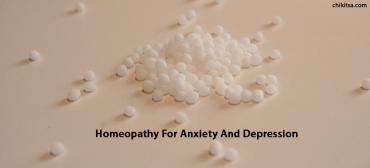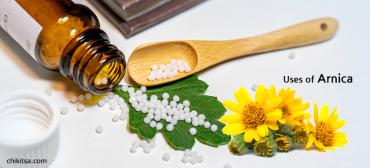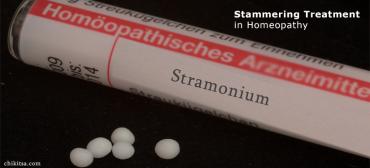Homeopathy Treatment for Psoriasis

Psoriasis affects a fairly large number of people and how they are affected or why they are affected is something that we do not know. Unfortunately, it is a distressing skin condition that affects the everyday lives of these people. Read on, and we will tell you all about this problem and how homeopathy can cure psoriasis.
You may feel the onset of psoriatic symptoms when a combination of environmental and genetic factors can disrupt the normal growth of skin cells. In the standard pattern of growth, the skin cells grow in the deeper layer and dead skin cells come to the surface of the skin about once a month. But, in the case of psoriasis, the immune system attacks healthy skin cells and causes the process to quicken resulting in the building up of dead skin cells on the surface of the skin.
Before we any go further, let us know more about psoriasis.
We can term psoriasis as an inflammatory skin condition where changes can be observed as color change of the skin along with plaques on the skin. In fair skinned people the plaque looks quite red while in dark skinned people the plaque will appear darker. Psoriasis which is not contagious mainly affects adults, but it can also be seen in children.
Symptoms of Psoriasis
The signs and symptoms of psoriasis can vary from person to person but mostly are:
- Red or dark patches of skin covered with silvery scales
- Small scaling spots normally seen in children
- Itching, burning, soreness
- Dry and cracked skin that may bleed
- Thickened, pitted, or ridged nails
- Swollen and stiff joints
The skin patches may appear dry and itchy and covered with silvery scales. The nails are affected and they may look thickened and brownish yellow with pits on the surface. In severe cases of psoriasis, the nails may even break. When it affects the scalp it may produce a lot of dandruff and when the joints are affected it can lead to Psoriatic Arthritis. In some cases it can manifest as genital sores in men.
What Triggers Psoriasis?
We cannot pinpoint what triggers psoriasis, but we do know that anything that compromises the body's immunity can trigger it. We give below some of the factors that could be responsible to spark it off.
- Stress
- Dry skin, especially in winters
- Certain drugs like anti-malarial drugs, lithium, and beta-blockers
- Bacterial or viral infections
- Injury to the skin such as cuts, wounds, burns, and insect bites
- Too much of exposure to the sun
- Chemotherapy for the cure of caner
- Auto-immune conditions like Aids and Rheumatoid Arthritis
Diagnosis of Psoriasis
Psoriasis can be diagnosed by a dermatologist or family physician by its typical appearance and location on the body. Based on skin changes, psoriasis can be diagnosed by clinical examination and mere appearance of the skin. A definite confirmation of psoriasis is skin biopsy, and this may have to be repeated if the results are not clear.
Types of Psoriasis
There are different types of psoriasis and a brief description of each is given below.
1. Erythrodermic Psoriasis:
This type of psoriasis is an inflammatory type of psoriasis that usually affects most of the body area. It is a rare type of psoriasis which is usually found in people who have unstable plaque psoriasis.
Symptoms
- Appearance of burnt skin
- Severe redness and shedding of skin over a large area of the body
- Exfoliation takes place in large sheets instead of smaller scales
- Increase in heart rate observed
- Severe itching and pain
- Fluctuation in body temperature
2. Guttate Psoriasis:
Guttate psoriasis causes a pink colored rash in the shape of a drop on the chest, arms, legs, and scalp. People with this type of psoriasis develop plaque psoriasis. This type of psoriasis is triggered by a streptococcal (bacterial) infection.
Symptoms
- Appearance of small pink or red spots on the skin two-three weeks after the infection
- Itching of the lesions
- This type of psoriasis may go away on its own within a few weeks without any treatment, but it persists in a few cases and may require treatment.
3. Inverse Psoriasis:
Inverse psoriasis is also known as Intertriginous psoriasis and shows up as smooth and shiny red lesions in the folds of the body. Usually people having this type of psoriasis are bound to have some other type of psoriasis on their body at the same time.
Symptoms
- Smooth and shiny red lesions is normally found in the armpits, groin, under the breasts, and other skin folds
- Irritation persists due to rubbing and sweating
- Predominantly more common in obese people with deep skin folds
4. Plaque Psoriasis:
Plaque Psoriasis is the most common form of psoriasis which appears as raised, red patches covered with silvery-white dead skin cells or scales. You will find them covered on the scalp, knees, elbows, and lower back.
Symptoms
- Raised, red patches covered with silvery-white dead skin cells or scales on the scalp, knees, elbows, and lower back
- These areas are itchy and painful
- Cracks and bleeding can also be observed
5. Pustular Psoriasis:
Pustular psoriasis is an uncommon form of psoriasis that is characterized by white pustules surrounded by red skin. These pustules are filled with pus or white blood cells.
Symptoms
- Pustules normally found on the hands and feet but sometimes found on the entire body
- The cycle starts with reddening of the skin followed by pustules and scaling
Treatment
Homeopathy takes a completely holistic approach for the treatment of psoriasis. There is a very firm belief that homeopathy can cure psoriasis and total health regained only when you can remove all signs and symptoms of the disease.
Homeopathy aims at not only curing psoriasis but to root out the basic cause and improve immunity. There are a number of homeopathic medicines available based on the cause, sensation, location, and symptoms. While it is extremely necessary that a professional homeopath be consulted, a few remedies are given below.
- Arsenic Album
- Sulphur
- Kali Brom
- Kali Ars
- Thyrodinum
- Radium Brom
- Aurum Met
- Psorinum
- Selenium
- Sepia
- Rhus Tox
- Calcaria Carb
It should be remembered that in some cases psoriasis cannot be cured or eliminated completely, but the symptoms are reduced greatly in severe cases. Treating the root cause of psoriasis may require a lot of time and number of sessions with your doctor. But, then the fruit of patience is always sweet, isn't it?










